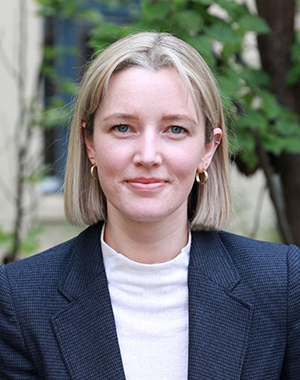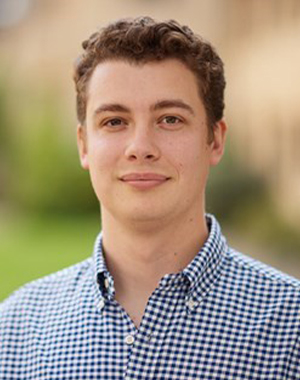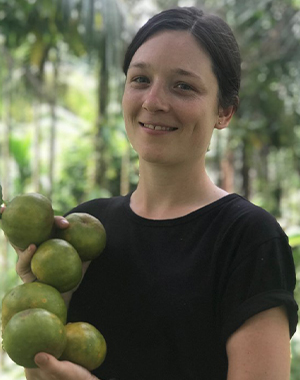Congratulations to the 2022 recipients of the Ramsay Postgraduate Scholarship, four of which are University of Queensland alumni.
These exceptional young Australians join 27 other scholars to form the second cohort of the most generous scholarship program in the country for postgraduate study overseas.
Valued at AUD$90,000 per year, this sought-after scholarship received a total of 167 applications - a 70 per cent increase from last year.
The funding will support them for one, two and in select cases three years of coursework and/or research at the world’s best overseas universities.
It is expected that the 2022 scholars, already community leaders and high achievers in their respective fields, will go on to make significant contributions to Australian society in their chosen careers.
HASS recipients include Melanie Kilby - a foreign policy specialist who wants to lead work enhancing Australian and US engagement with Southeast Asia, John De Bhal - whose research focus is on social status in international relations, the international order, and West/Non-West relations, and William Holbrook - passionate about cultivating an awareness of our rich literary heritage and in the future hopes to work in academia in literary studies.
Their study destinations include Georgetown University, University of Oxford and University of Cambridge respectively.
These scholarships were made possible through the extraordinary generosity of the late Paul Ramsay AO and assist our future leaders by supporting their graduate study at the world’s best overseas universities.
For more information on the Ramsay Postgraduate Scholarships and how to apply visit the website.
UQ recipients of Ramsay Postgraduate Scholarship 2022
MELANIE KILBY
Master of Arts in Asian Studies – Georgetown University

Melanie Kilby is a foreign policy specialist, most recently Executive Officer to Australia’s Director-General of National Intelligence. She has advised Government, on international political and strategic matters in several roles, including the Prime Minister’s Cabinet Secretary, and directed the National Australia-Indonesia Language Awards. She holds a Bachelor of Arts in International Relations (Indonesian major) with First Class Honours from the University of Queensland. Melanie is passionate about increasing Australia’s understanding of Southeast Asia and its shifting geopolitical landscape. With her World Universities Ramsay Postgraduate Scholarship, Melanie will study a Master of Arts in Asian Studies at Georgetown University, looking at political systems, the struggle for Western liberal democratic values, and the threat to the liberal international order – with a focus on Southeast Asia. In the future Melanie plans to lead work across sectors on enhancing Australia’s and the United States’ diplomatic, political, and economic engagement with Southeast Asia and continue volunteer work to increase Asian language literacy in Australia.
JOHN DE BHAL
Doctor of Philosophy in International Relations – University of Oxford

John de Bhal is originally from Brisbane and is currently a Doctor of Philosophy candidate in International Relations at Oxford. He holds a Bachelor of Arts (Honours Class I) in International Relations from the University of Queensland and a Master of Philosophy in International Relations from Oxford with a thesis on Brazil’s relationship with the West. His research focus is on social status in international relations, the international order, and West/Non-West relations. He has published in the journals Third World Quarterly and Contemporary Politics. He is passionate about shaping public debate around Australia’s place and role in international affairs and in the future hopes to work in a foreign affairs related field such as academia, defence, or the foreign ministry. When not studying at Oxford, John can usually be found on a cricket pitch. In 2021 he was awarded a Blue for Cricket and he hopes to achieve another Blue for cricket at Oxford this year.
WILLIAM HOLBROOK
Doctor of Philosophy in English – University of Cambridge

William Holbrook is from Brisbane, now based at Cambridge University, studying a Master of Philosophy in English. His MPhil dissertation is on D. H. Lawrence’s Australian novel Kangaroo and James Joyce’s Ulysses, and both writers’ views on democracy. He holds a Bachelor of Arts/LLB from the University of Queensland, with majors in English and Classical Languages. In 2020 he completed Honours in English at the University of Melbourne, where he wrote about the influence of the nineteenth-century polymath John Ruskin on two very different modernist writers: the Irish poet W.B. Yeats, and the German-Jewish Marxist Walter Benjamin. With his World Universities Ramsay Postgraduate Scholarship William will commence PhD studies at Cambridge; his topic is the influence of William Morris on various strands of twentieth-century political and aesthetic thought in England. William is passionate about cultivating an awareness of our rich literary heritage and in the future hopes to work in academia in literary studies.
GENIA HILL
Doctor of Philosophy in Geography and the Environment – University of Oxford

Genia Hill is from rural Central Queensland, where she grew up on a cattle farm. She holds a Bachelor of Arts in Comparative Literature and a Bachelor of Science in Ecology, Evolution, and Conservation Biology from the University of Washington, Seattle. Genia also holds a Master of Environmental Management (Sustainable Development) from the University of Queensland, for which she conducted field research investigating food systems resilience in Bougainville, Papua New Guinea. With her World Universities Ramsay Postgraduate Scholarship, Genia will pursue a Doctor of Philosophy in Geography and the Environment at Oxford. Her research will seek to determine community-focused drivers of food systems aid uptake using a case study of Papua New Guinea’s cocoa value chain. Genia believes Pacific aid is extremely important, and that aid applied through thoughtful food systems development can be the key to improving livelihoods (especially for women), facilitating healthy, resilient ecosystems, and combating climate change and its impacts.



